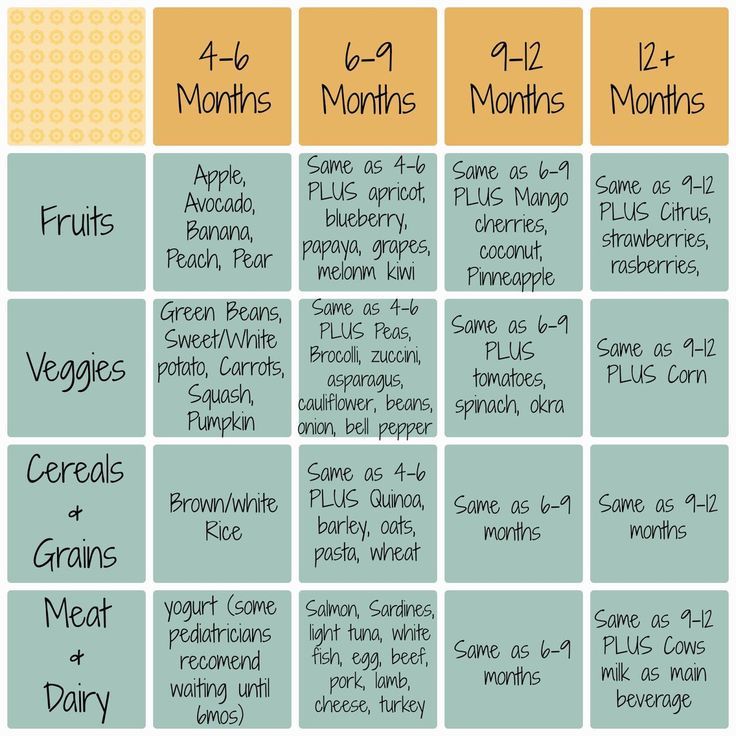My baby is feeding every hour at night
Baby Feeding Every Hour and Not Sleeping
Is your baby feeding every hour and not sleeping well? Learn how to handle cluster feeding and a baby still hungry despite frequent feedings.
You knew babies ate a lot, but this much? Over the last few days, your baby has constantly been eating every hour. Your breasts feel empty, which makes you wonder whether you’re not producing enough. Is he eating so often because he’s not getting enough milk?
And when he takes 20-25 minutes each nursing session, no wonder you can’t get any breaks.
Initially, you understood the demands of a newborn. But at this point, you’ve had it with feeding on demand and waking up multiple times a night. You miss having a full night of sleep, and find it unfair when babies born after yours are already sleeping in five-hour chunks.
And with you going back to work in a few weeks, you’re desperate to find a way to get your baby to sleep longer.
When your baby is feeding every hour and not sleeping
I was so sleep-deprived with my eldest (and later my twins) that I barely had time to even catch a quick catnap with his newborn schedule. When I’d hear him wake up, I’d peer at the clock, hoping that at least a few hours had gone by since the last time he ate. But nope—he had only fed an hour ago.
It didn’t help that falling asleep after he had just fed wasn’t always guaranteed either, and I’d be awake the entire time. I was so jealous of moms whose babies were already sleeping five to six hours straight, or weren’t feeding nearly as often as mine.
And as a first-time mom, I wondered whether I was doing something wrong that my baby was still feeding so frequently.
Frequent feeding shouldn’t be a permanent fixture in your life. For many reasons (cluster feeding all night, growth spurts), your baby will nurse often, but that shouldn’t be the case every day. Take a look at a few tricks I tried to lessen the amount of feeding sessions while still meeting my baby’s needs:
1.
 Make sure your baby is actually eating
Make sure your baby is actually eatingDoes it feel like you’re a human pacifier for your baby? Where he’s been nursing for an hour but is still hungry? That might be because he’s relying on nursing to fall asleep, and not to actually consume calories. After all, sucking helps him fall asleep, and nothing beats being in your arms.
How can you make sure he’s actually eating and not using you as a pacifier? Check his throat to see if it moves. If he were actually drinking, you’d see movement in his throat, just as yours would if you were to drink a glass of water.
Then, listen for a swallowing sound. He might not be eating if he’s not making any noises that indicate actually consuming the milk.
And finally, make sure he doesn’t fall asleep while he eats. He could be genuinely hungry but isn’t taking in as much as he could because he falls asleep. To keep him awake, tickle him, remove pieces of clothing, or change positions or burp him in the middle of a feeding.
Free download: Did you know that your baby’s awake time just might be affecting how well he sleeps or not? Join my newsletter and grab your copy of One Mistake You’re Making with Your Baby’s Awake Time—at no cost to you—and discover one mistake you may be making with his awake time.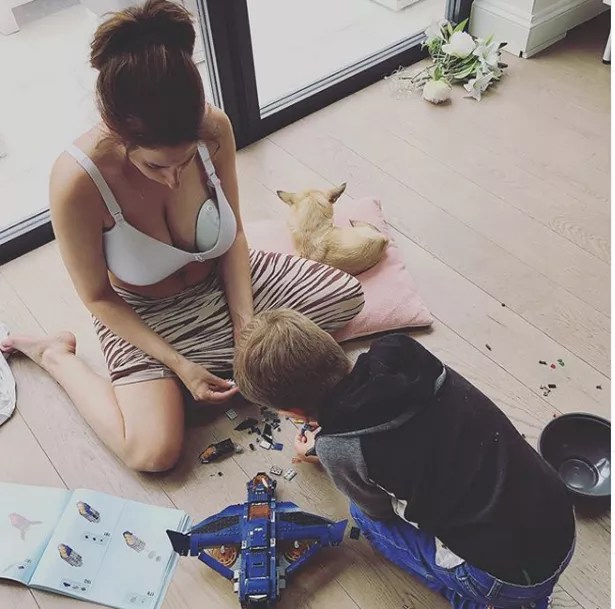
Don’t make the same mistakes I did—help him fall asleep with this one simple trick! Download it below:
2. Offer a pacifier after feedings
Let’s say your baby does use feeding sessions to soothe himself to sleep. One trick you could try is to slip a pacifier in his mouth as he begins to doze off at the tail end of a feeding session.
Break his hold on your breast or bottle by inserting a finger in his mouth. This opens up the suction and allows you to pull away. Then, insert the pacifier in his mouth so that he can continue to suck on that instead of your breast or bottle.
He gets to continue to suck and soothe himself to sleep, but with a pacifier instead.
3. Dreamfeed before you sleep
You likely put your baby down to sleep before your own bedtime. Perhaps she’s asleep by 7:30pm, and you’re in bed at 9pm. One trick that can buy you some time is to dreamfeed her before you fall asleep.
Feed her as you usually do, then, before you head to bed, feed her once more. Yup, even if she’s asleep. She’ll have a full tummy, giving you some extra time for your first stretch of sleep. Because she’s still so drowsy, she’ll be able to fall right back to sleep.
Yup, even if she’s asleep. She’ll have a full tummy, giving you some extra time for your first stretch of sleep. Because she’s still so drowsy, she’ll be able to fall right back to sleep.
You’re able to feed her so she isn’t as hungry, but at a time of the night when you’re still awake (instead of groggy and sleep-deprived).
Get more tips on how to dreamfeed.
4. Work in shifts with another adult
One way to make sure you get a good chunk of sleep is to work in shifts with another adult, like your partner or parent. For instance, your spouse can be on “baby duty” from 7pm to 12am, giving you a good five-hour chunk to fall asleep. Then, you would cover the following hours, from midnight to 5am.
This way, both of you get a long stretch of sleep at night.
If you’re breastfeeding, prepare pumped bottles ahead of time so that another adult can also feed the baby. If need be, wake up once in the middle of your five-hour stretch to pump. You’re still waking up, but at least you can fall right back to sleep after you’re done.
You’re still waking up, but at least you can fall right back to sleep after you’re done.
Is your baby nursing for an hour and still hungry? Here’s what to do.
5. Let your baby fuss a little
Do you feel compelled to feed your baby the minute you hear him fuss and whine? See what happens if you give him a few minutes before you feed him.
You might find that what he was complaining about was pretty minor, and he’s able to settle himself back to sleep. He might not even be hungry to begin with, so he’s only nursing or feeding to soothe himself. Or he just might break the association of waking up and expecting to feed right away.
If you don’t want his cries to escalate, listen to how they sound. Hold off for a little if they sound like slight whimpers or small complaints. He might go back to sleep if you don’t jump to feed him the second he makes a sound.
6. Create a routine
We might not realize it, but babies pick up a whole lot more than we give them credit for. Even though they might not understand the words we say, they can certainly benefit from having a consistent routine. To start, they’ll know that feedings happen after certain activities.
Even though they might not understand the words we say, they can certainly benefit from having a consistent routine. To start, they’ll know that feedings happen after certain activities.
If you’ve been lenient with a routine, up the ante if your baby has been feeding every hour and not sleeping. Give him a bath, dress him in fresh clothes, and cap it with a long feeding session, for instance. Keep this up for a few days, and he’ll begin to expect bedtime feedings after you go through your routine.
Learn how to create a baby nighttime routine.
7. Use a swaddle
Disclosure: This article contains affiliate links, which means I will earn a commission—at no extra cost to you—if you make a purchase.
Like with a pacifier, feedings can be one of the ways your baby relies on to fall asleep. When he wakes up, he doesn’t know how to put himself back to sleep just yet, and cries to be fed once again.
But if he’s wrapped in a swaddle, he’s less likely to wake up and cry. He loves the familiar snugness of being in a swaddle, which will help him sleep longer. Besides a swaddle, you can also use white noise to muffle loud or sudden sounds that can startle him awake.
He loves the familiar snugness of being in a swaddle, which will help him sleep longer. Besides a swaddle, you can also use white noise to muffle loud or sudden sounds that can startle him awake.
Conclusion
It’s never easy when your baby has been feeding every hour and doesn’t sleep in long stretches. Should that happen, make sure that he’s actually eating when he’s feeding. Offer a pacifier, especially if he just needs to suck to soothe himself to sleep.
Dreamfeed to fill him up before you go to bed, and consider working in shifts with another adult to get a long chunk of sleep. Let him fuss a little instead of feeling compelled to feed him at the first whimper. Create a routine to set expectations, and use a swaddle (and white noise) to extend his sleep.
Frequent feedings shouldn’t happen every night. Now you know what you can try to get your baby to feed between longer stretches!
Get more tips:
- What to Do When Your Baby Wants to Breastfeed Constantly
- When Breastfeeding Hurts (Even with a Good Latch)
- 6 Ways to Handle Your Newborn Constantly Feeding
- Baby Wakes Up Every Hour? Must-Know Tips for Parents
- 12 Things to Do When Your Newborn Fights Sleep
Don’t forget: Join my newsletter and grab your copy of One Mistake You’re Making with Your Baby’s Awake Time—at no cost to you:
What To Do When Baby Is Feeding Every Hour (& Not Sleeping!)
What's in this post. ..
..
Is your baby feeding every hour and not napping or sleeping well? Here’s how you can handle when your little one nurses nonstop.
First let me say, mama, that the newborn period can be rough.
You feel like you were a normal human just a few short weeks ago and now, well, you’re a walking milk producer and baby just won’t settle.
You’re exhausted, weary, and ready for your newborn to sleep.
➡️ The good news is this: with a few tweaks you can stop feeding every hour.
Here’s why your baby feeds every hour
If your baby feeds every hour, they are “snacking.”
Snacking means they are drinking enough fore milk (the less nutrient dense milk that lets down first) that they are filled up enough to doze off in mama’s arms.
Or, some babies, will stop feeding after a few minutes and just stare up at you with those Big Newborn Eyes👼.
Either case… baby is snacking instead of taking a full feed.
Read These While You’re At It
How to get your baby to stop feeding every hour
If you want your baby to take full feeds, the first thing you need to do is get them on a proper newborn breastfeeding schedule.
You aren’t going to become a slave to the clock, but you’re going to stop the snacking.
Instead of cluster feeding on purpose, right now, you’re cluster feeding by accident.
How do you do that?By only feeding baby every 2.5 to 3 hours and then, at those feeds, giving baby full feeds.
Newborns will naturally only need to feed every 2.5 to 3 hours if they’re taking full feeds each time.
If your baby has a habit of snacking, they will not be the ones to stop it, you’ll have to.
Newborn Feeding Chart
Use this simple printable chart to track your feeds to make sure baby is fed, your supply is up, and everyone is well.
Here’s how to keep baby awake during breastfeeding
When baby feeds for 5 minutes then nods off, you’ll need to swoop in and keep baby awake.
This will help baby get as much milk in as possible and will help them to take better naps.
- Rub baby’s cheek
- Rub baby’s hands or feet in circular motions
- Unswaddle baby (a must if you want to avoid day night confusion)
- Use a wipe or wet wash cloth to rub on baby during feeds
- Stop feeding and hold baby up, speaking to baby
- Take baby outside or somewhere that’s a change of scenery
- Make noise, get near siblings, talk to baby
- Keep the lights on
Read: Is Sleep Training a Baby Bad or Dangerous? Let’s Talk Facts!
The reason baby doesn’t sleep well when they feed every hour
Your little one will likely not take good daytime naps if they are not taking full feeds.
They aren’t full enough to stay drowsy and asleep as they transition sleep cycles.
When they transition from active to passive sleep (or vice versa) if they aren’t full and are hungry, instead of just continuing the nap, they’ll become fully alert and ready to feed.
And then, because they only took a short nap, when you feed again for 5 to 10 minutes, they’ll be lulled back into a sleep.
➡️ Continuing the cycle of accidental cluster feeding and an overtired baby.
Related Reads:
- The Biggest Baby Sleep Myth That Backfires Every Time (And Makes Over Tired Babies)
- The Ultimate Guide To Baby Sleep Times (Naps & Bedtime)
How to stop the cycle and get on a good routine
The first thing you need to do is to stop baby from snacking every hour.
Encourage full feeds.
If baby is older than 6 weeks and wants to feed after one hour, consider offering a pacifier (we use these stuffed animal ones) instead.
This may help baby get back to sleep for a longer nap, and will mean the next time you feed baby will be hungry enough to eat a full feed.
Do the best you can.
Baby has been in the snacking habit and may resist the change, but eventually you’ll see that you have a far less whiny baby on your hands when they have full tummies and are well rested.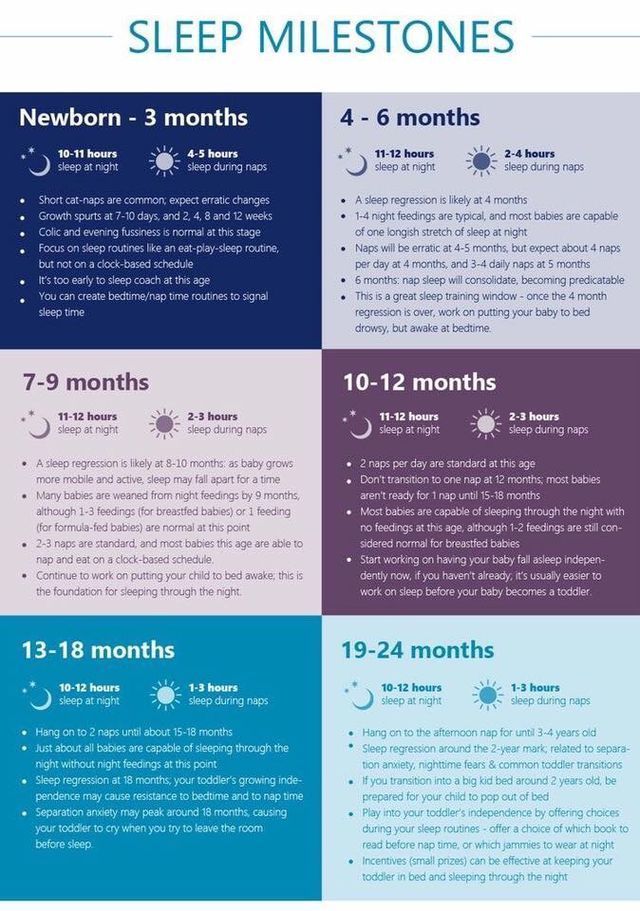
Read: 8 Reasons You’ve Got A Whiny Baby And What To Do About It
Sleep Little Lamb
Create sustainable sleep habits for your little lamb so the whole family can sleep peacefully without the stress, drama, and tears.
Learn More
How to get your newborn to nap better
After you make sure that baby has full feeds, you’ll want to work on the napping…
I encourage you to read my full post on baby sleep here – Foolproof Baby Sleep Tips — Routines, Habits & Strategies.
@amotherfarfromhome Follow for more tips like this one! #newmommas #momstrugglesbelike #tipsformom #mommingit #sahmom #parentcoach #mommingallday #newbornbabytips ♬ Sunroof – Nicky Youre & dazy
Here is how to approach napping with your baby:
- Newborns should only be awake for around 45 to 90 minutes at a time (including feeding!) so your newborn routine and your newborn sleep schedule should have a nap after every single feed.

- Don’t rock baby to sleep in your arms and then try to put him in the crib because when he transitions through the sleep cycles he’ll realize he’s not in your arms… and he’ll wake up early.
Read: The Top 10 Indicators It’s Time to Sleep Train
- Establish a basic routine with your baby. You can follow this newborn routine here or modify it slightly.
- Put your baby to sleep drowsy but awake.
- Establish some wind down routines for your little one prior to nap.
- Focus on cluster feeding in the late evening hours which will help baby top up and sleep better throughout the night.
- Identify any sleep props your baby has (things that prevent him from transitioning and sleeping well on his own) and replace those with sleep associations.
28 Things To Do If Baby Won’t Sleep CHECKLIST
Here’s a handy dandy list of 28 things to try so baby will stop fighting sleep and sleep longer and later.
Recap and FAQ… How to get baby to stop feeding every hour and start sleeping
Why does my baby feed every hour?
Short answer… because you let him. Encourage baby to take full feeds and then baby won’t need to feed sooner than 2.5 or 3 hours between feeds throughout the day.
Perhaps even less at night.
Is ten minutes a full feed?
Probably not.
If baby will feed for ten minutes then nap and wake up to feed around 2.5 hours later, it might be.
My daughter fed no longer than 15 minutes per feed, but she could go 3 hours between feeds so, for her, it was a full feed.
Why does my baby want to breastfeed constantly?
If your baby wants to feed constantly, but never feeds that much, then it’s likely an association between feeding and comfort.
You can create other positive associations by cuddling, singing, rocking, baby massage, and other things that will help you to feel bonded to baby (so you can enjoy baby now!) but not be open for milk business all day.
Is feeding every hour cluster feeding?
Yes and no.
Cluster feeding is generally something a breastfeeding mother does on purpose in the late afternoon early evening period (feeding every 2 hours, say) to help give baby all the nutrients he needs so he will sleep later and longer.
Feeding every hour is more like an accidental cluster feeding and if baby isn’t having full feeds then it’s more like Comfort Nursing, not cluster feeding.
About those growth spurts…
Do babies feed every hour when they are going through a growth spurt?
If your baby is going through a growth spurt they will want to feed more often.
This helps your milk supply increase. It’s how you can know if baby is getting enough milk.
If baby is feeding every hour two and taking these feeds seriously – full feeds – then it’s likely a growth spurt or milk supply issue.
Or if baby is trying to feed every hour or two and only feeding for five minutes here or there, it’s not likely a growth spurt.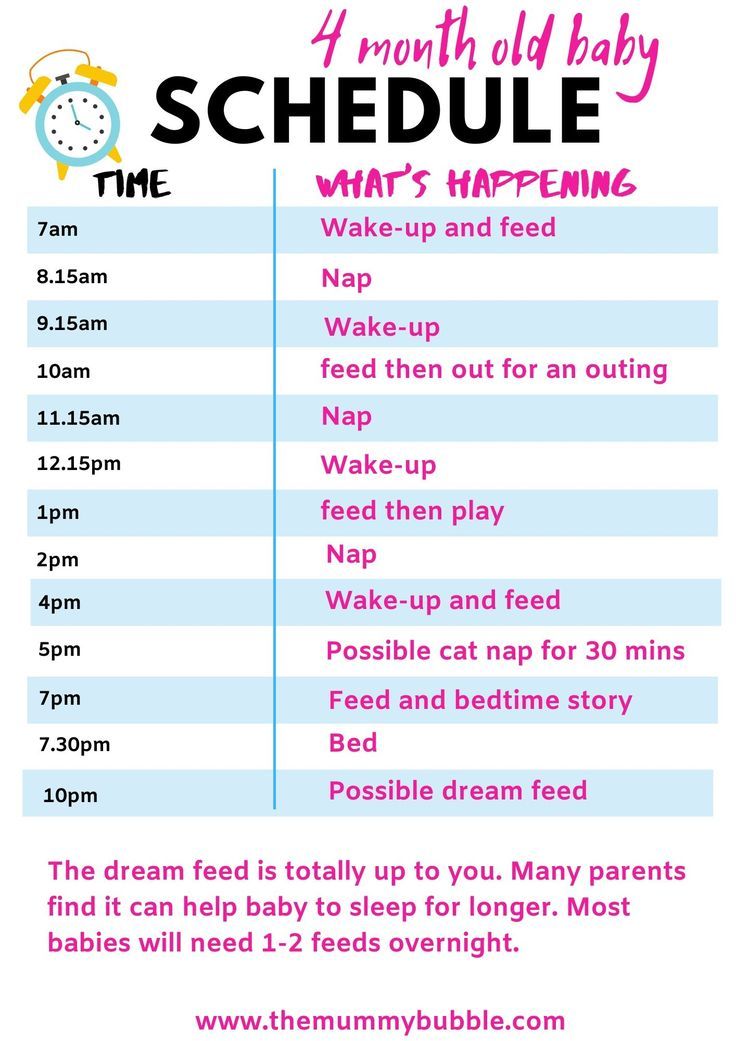
Why does my baby nurse for 5 minutes and then cry?
This could be a number of things.
Baby could have reflux or you could have hyper-lactation.
Baby could have uncomfortable gas.
Or baby could have a food sensitivity to something you’ve eaten. If this persists past a few days, I’d go in to the doctor and rule out the above causes.
Newborn Feeding Chart
Use this simple printable chart to track your feeds to make sure baby is fed, your supply is up, and everyone is well.
Milk supply?
Why does my baby always seem hungry and never satisfied?
This could be your milk supply. Here’s how to know if baby is getting enough milk.
Could be that baby is going through a growth spurt which means baby is more hungry.
Baby might be teething and eating is not comfortable so he’s not feeding well and in pain. Try pain management for babies who are going through teething.
Why is my newborn feeding for hours on end?
Short answer: they don’t.
They may stay at the breast for a long time, but that doesn’t mean they are actively feeding.
If your baby will take a pacifier you’ll see that they will also suck at the pacifier while sleeping.
Encourage your baby to be awake for feeds and then, after 30 to 45 minutes, take baby off the breast and let them take a nap in their own crib.
Sources:
- The importance of schedules and routines
- Routines minimize chaos which promotes resilience and regulation
- Routines indicators of predictable family life contributing to childhood development
::
Displaced feeding schedule: why does your baby eat all night and how to change it?
03/12/2017
112418
73
Feeding and sleep
3-6 months --9 months–18 months
Article
Natalya Trofimova
Natalya Trofimova
Senior Square, Pediatrician
22 Mom of two daughters
Does your baby eat little or rarely during the day, but hangs on her chest for a long time at night or often asks for a bottle? This is called a "shifted feeding schedule". With this organization of nutrition, the child receives the bulk of the calories at night. During the day, feedings are either short or rare, or the baby refuses the breast or bottle altogether. After six months, there may be difficulties with the introduction of complementary foods, especially with unformed nutritional interest.
With this organization of nutrition, the child receives the bulk of the calories at night. During the day, feedings are either short or rare, or the baby refuses the breast or bottle altogether. After six months, there may be difficulties with the introduction of complementary foods, especially with unformed nutritional interest.
Child crisis calendar
Why is this happening?
- During periods of crisis in a child's development (a developmental leap, teething, an acute illness, any strong emotional experiences), a temporary and sharp increase in the number of feedings is normal, it just needs to be waited out.
- Babies in their first months of life can “mix day and night” and, accordingly, stay awake and eat mostly at night.
- Older children become interested in everything and are easily distracted during the daytime feedings, butting for a short time, because they have too many important things to do during the day.
- With the introduction of complementary foods, mothers sometimes begin to replace daytime feedings with breast milk or formula with low-calorie fruit and vegetable purees, and the baby has to “get” calories at night.

- Mixed-fed, when breast milk and formula are clearly separated by time of day. When breastfeeding only during the day, the baby may refuse the breast if he prefers a bottle that is given only at night. And vice versa, when feeding during the day with a mixture, and at night with a breast, if the baby prefers the breast.
- Breastfeeding mother works outside the home or is separated most of the day from the baby (even with the possibility of pumping). When sleeping together, the baby is often applied, replenishing contact and helping to stimulate lactation. This option is not bad as a solution, provided that co-sleeping is suitable for the family and everyone gets enough sleep.
Answer a few questions to find out if your feeding schedule is shifted:
- How many times does the child eat during the day and how, how many times does he wake up at night?
- Does he eat for a long time every night when he wakes up, are sips audible, or is it mostly short attachments with superficial sucking for a couple of minutes?
- Are the daily feeds long, does the baby let go of the breast when it is full, or is it often torn off and distracted?
- Can a baby fall asleep without breastfeeding or a bottle (both day and night) or is this the only way to fall asleep?
Frequent nightly "snacking" does not always indicate that the feeding schedule is shifted. If feeding is a way to relax and fall asleep, then when awakened at night between sleep cycles, the breast or bottle will again be required to fall asleep. This is an association with sleep, the way and habit of falling asleep.
If feeding is a way to relax and fall asleep, then when awakened at night between sleep cycles, the breast or bottle will again be required to fall asleep. This is an association with sleep, the way and habit of falling asleep.
What such feedings usually look like:
- The baby wakes up every 1–1.5 hours at night and asks for food, and during the day he usually eats after 3 hours, which means that he is unlikely to experience hunger.
- The child eats very little at night: he kissed his chest for a minute or a bottle, ate 10-20 ml and fell asleep - in this case, he does not have a goal to eat.
- If there is an association for sleep, but the daily appetite does not suffer, mother and baby get enough sleep, there is nothing to worry about. In order for the number of nightly awakenings and feedings to allow sufficient sleep, even if there is an association for sleep, the child must be well suited to sleep and wakefulness.
Is it possible to change the habit of eating at night and when should I wait?
As much as one would like to reduce the number of night feedings, there are situations when they are necessary.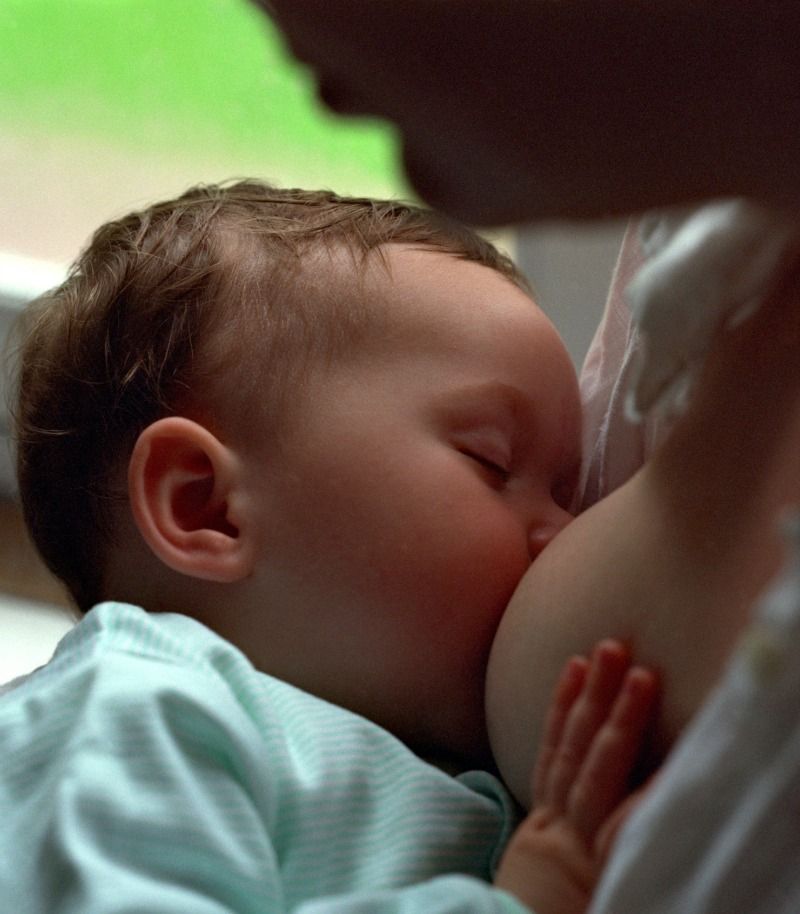 For example, a baby in the first months of life does not gain weight well, there are problems with lactation (little milk, false breastfeeding), adaptation to a therapeutic mixture with a specific taste and refusal to wake up, the baby feels unwell (sick, teeth are being cut), a child is experiencing a developmental leap, stress, a long separation from her mother.
For example, a baby in the first months of life does not gain weight well, there are problems with lactation (little milk, false breastfeeding), adaptation to a therapeutic mixture with a specific taste and refusal to wake up, the baby feels unwell (sick, teeth are being cut), a child is experiencing a developmental leap, stress, a long separation from her mother.
The assistance will depend on the age and the reason for the predominance of night eating. In the first months of life, with the "confusion of day and night," it is important to show the baby when it is day and when it is night. For daytime sleep, you do not need to create a strong blackout, and at night you need to ensure maximum darkness in the room. Limit overly long naps. All activities, walks, communication - during the day, no games at night.
If the baby is distracted during feedings and “forgets” to eat, you need to create the most calm atmosphere during feedings: turn off the TV, do not use the phone, retire to a darkened quiet room, turn on white noise. You can put a bright scarf around your neck, slingobuses, any baby rattle on a ribbon. Try a different position with less visibility, such as kneeling facing you or in a sling.
You can put a bright scarf around your neck, slingobuses, any baby rattle on a ribbon. Try a different position with less visibility, such as kneeling facing you or in a sling.
With the introduction of complementary foods, do not rush to replace breastfeeding or mashed formula. The first vegetable or fruit purees are not comparable in calories to breast milk and formula. Occupying volume in the stomach, they reduce milk intake during the day. Complementary foods can fully replace feeding only after 8 months, when it will make up about 20–30% of nutrition and the baby will eat cereals, meat, and vegetables.
On mixed feeding, it is desirable to supplement the baby with the mixture in the required amount after each application to the breast, or feed the mixture by the hour (at regular intervals), and breastfeed on demand.
A working mother who is breastfeeding and co-sleeping has the hardest time reducing nighttime feedings. To do this, you need to feed the baby often enough during the day, a maximum of 3–3. 5 hours. In the evening, you can reduce the intervals and in the last 3 hours before laying down, put the baby to the breast or give expressed milk every hour, after falling asleep at night around 23-24 hours, offer “sleep feeding”, feed in the morning upon waking up and before leaving the house.
5 hours. In the evening, you can reduce the intervals and in the last 3 hours before laying down, put the baby to the breast or give expressed milk every hour, after falling asleep at night around 23-24 hours, offer “sleep feeding”, feed in the morning upon waking up and before leaving the house.
Frequent night feedings are necessary for a child at certain periods of his life and development. The main difficulty is to understand when the crisis period has passed, to begin to distinguish between the child's need for food and his anxiety for other reasons. A child who wakes up at night is not always hungry, and acting always in the same way, you can fix the habit.
If you can't figure out your feeding schedule on your own, book an individual consultation. The BabySleep consultant team also includes consultants for breastfeeding and complementary foods. We will help you establish a comfortable feeding schedule for you and your baby and return your family to a restful sleep.
Article updated: 06/26/2021 nextArrow: '', responsive: [{breakpoint: 1199, settings: {arrows: !1, infinite: !1, slidesToShow: 1}}] }) })
My baby wakes up every hour for a feed
Sleep Series Part 1
The biggest worry a parent has is their baby's sleep. Ask any of them and they will complain about the lack of sleep. Many parents are afraid that what is happening is beyond the "normal", and believe that this must be somehow dealt with. So they buy books, make calls to friends, family members, and even doctors asking what to do about sleep. All this leads to excessive anxiety of parents.
It is likely that baby sleep experiences arise because we live in a society that constantly sends the message to parents that they need to worry about their baby's sleep, that there will be dire consequences if the baby doesn't get enough sleep. hours. Also, most new parents do not know what normal baby sleep is, due to the fact that they themselves had very little experience in caring for children before the birth of their first child.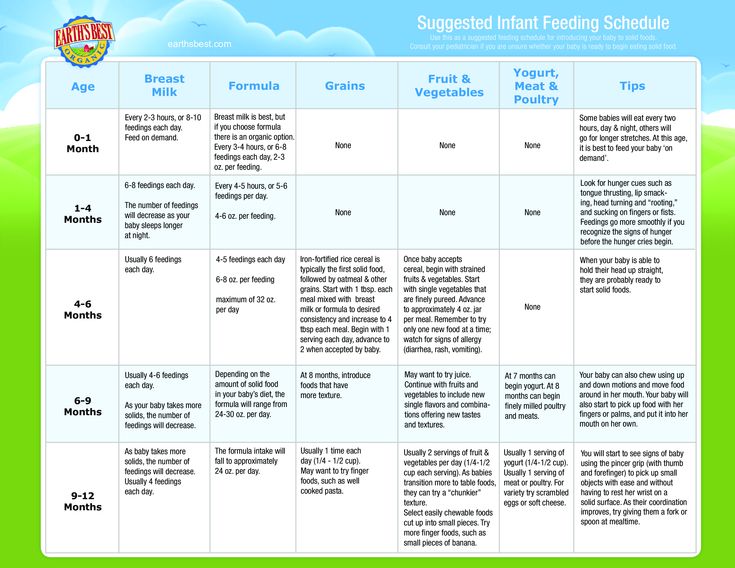
Knowledge about baby's sleep habits will help relieve stress and anxiety, bring peace and happiness to the family.
What is considered normal?
In a series of articles on sleep, we will try to look at the most common "problems" with sleep. We hope this helps you see what the normal stages of your baby's development are like.
"My baby wakes up every hour to eat"
Parents often worry about waking up to feed regularly, whether it's every hour, every two hours, or every three. And this is not surprising, since our society has accustomed us to the idea that a child should sleep through the night. However, an uninterrupted night's sleep is not the biological norm for a baby, especially a breastfeeding one.
At the time of birth, the baby's stomach can take only a small amount of milk (no more than a teaspoon). This means that he will feed frequently to cover all the energy requirements needed at this stage of growth. Despite the fact that the stomach expands rapidly, the content of fat and protein in breast milk remains at a lower level than in the milk of other mammals, so the baby is forced to eat often, which leads to frequent night awakenings (Ball, 2003; Ball, 2009).
Women's breast milk, designed for frequent feeding throughout the day, is easily and quickly digested. At the same time, the mixture is usually made from animal milk and contains more fat and other components that are more difficult (and therefore longer) to digest. This is reflected in the duration of the child's sleep, making him sleep unnaturally long (long stages 3 and 4 of non-REM sleep) (Butte, Jensen, Moon, Glaze, & Frost Jr., 1992). During these stages, it is more difficult for the baby to wake up to stop holding his breath (apnea), which can lead to a decrease in the amount of oxygen received. Also, formula does not generally guarantee parents more sleep (Doan, Gardiner, Gay, & Lee, 2007).
Predominantly breastfed babies often wake up for feedings. It is also necessary to maintain lactation (Ball, 2009). However, regardless of the type of feeding, most children often wake up at night (Weinraub, Bender, Friedman, Susman, Knoke, Bradley, et al., 2012). Night awakenings are the norm and the mechanism of biological adaptation. And although it is often said that sleep cycles change in the second year of life, they can differ from child to child.
And although it is often said that sleep cycles change in the second year of life, they can differ from child to child.
Breastfeeding mothers may wake up more often, but generally sleep longer. For example, one study examining the sleep of infants up to 2 years of age found that children frequently wake up during the night and into their second year of life, which correlates with information about cultures that have co-sleeping and prolonged breastfeeding (Elias, Nicolson, Bora, & Johnston, 1986).
Nocturnal awakenings protect the child. One study found that babies wake up more often when co-sleeping with their parents, and that frequent awakenings can prevent sudden infant death syndrome at its worst, before 8 months of age (2-3 months of age is most dangerous) (Mosko , Richard, & McKenna, 1997; Mosko, Richard, McKenna, & Drummond, 1996). If we look at the development of the relationship between parents and children in terms of history and cultural evolution, frequent nighttime awakenings, along with co-sleeping and breastfeeding, are the norm against which we should evaluate the sleep of other infants.
"My baby slept so well at night, and suddenly it stopped"
Imagine that you used to wake up often for feedings, but over time this became less and less. Then you realized that now you can just sleep. Finally, normal sleep! And suddenly, it all went away as quickly as it came. Your wonderful, sleeping through the night baby has started waking up frequently again. This situation, which has become a reality for many parents, brings disappointment and a feeling that you made a mistake somewhere and must do something to return that uninterrupted sleep.
But it's not really your fault. A return to frequent awakenings after a period of uninterrupted sleep is also the norm. Many children have such periods. Scientists studying infant sleep cycles have found that children who previously slept well begin to wake up more often between 6 and 12 months (Scher, 1991; Scher, 2001). One long-term study looking at infant sleep at 3-42 months of age found that the number of awakenings and even sleep duration was unpredictable (Scher, Epstein, & Tirosh, 2004).







